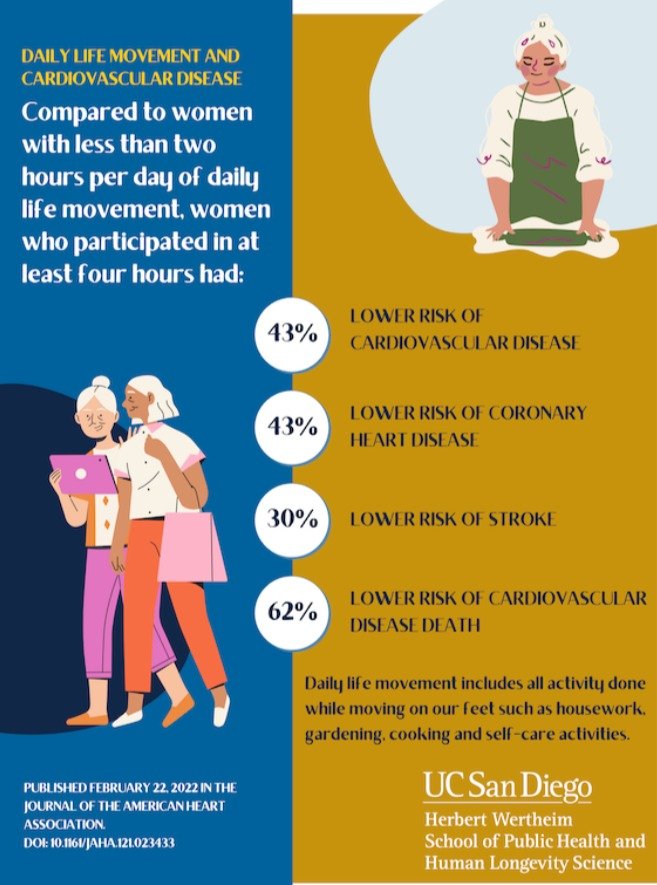
Running or brisk walking is not the only way to reduce the risk of heart disease.
In a new study from UC San Diego, researchers found that daily life movement can significantly benefit cardiovascular health in women.
Daily life movement includes all activities done while moving on one’s feet during activities such as housework, gardening, cooking, and self-care activities. It’s simply being “up and about” performing routine activities.
Cardiovascular disease continues to be the leading cause of death among both women and men in the United States with rates highest in adults aged 65 or older.
In the new study, the researchers aim to explore the impact of daily life movement on cardiovascular disease risk.
They used a machine-learning algorithm to classify each minute spent while awake into one of five behaviors: sitting, sitting in a vehicle, standing still, daily life movement, or walking or running.
Daily life movement encompasses activities occurring when standing and walking within a room or patio, such as when getting dressed, preparing meals, or gardening.
As part of the Women’s Health Initiative Objective Physical Activity and Cardiovascular Health study, researchers measured the physical activity of nearly 5,416 American women, who were aged 63 to 97 and who did not have heart disease at the start of the study.
The researchers found that compared to women with less than two hours per day of daily life movement, those women with at least four hours of daily life movement had a 43% lower risk of cardiovascular disease, 43% lower risk of coronary heart disease, 30% lower risk of stroke and notably, a 62% lower risk of cardiovascular disease death.
As Steve Nguyen, Ph.D., M.P.H. at the Herbert Wertheim School of Public Health, says all movement counts towards disease prevention.
Spending more time in daily life movement, which includes a wide range of activities we all do while on our feet and out of our chairs, resulting in a lower risk of cardiovascular disease
If you care about heart health, please read studies about common antibiotic drug linked to higher heart attack risk, and findings that eating this food regularly can protect against recurrent heart disease.
For more information about heart health, please see recent studies about common snack that may cause heart rhythm disease, high blood pressure, and results showing that common heartburn drug may help treat COVID-19.
The study was conducted by Steve Nguyen et al., and published in the Journal of the American Heart Association.



